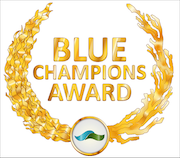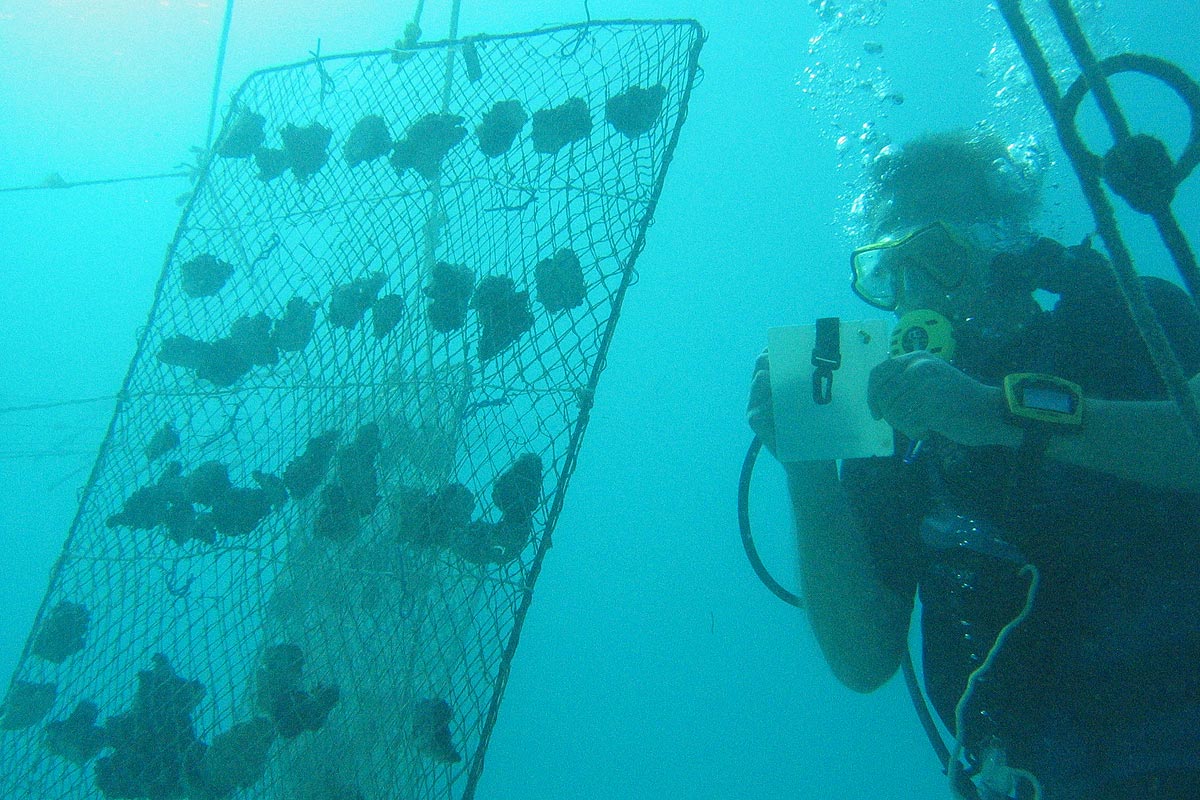Nov - Dec 2014: Coral Farming Workshop
03.11.2014
As announced previously, we are now starting to cultivate corals for the aquarium trade. The poaching of corals has become a problem with their usage in ever-popular aquaria. At marinecultures.org we are determined to counteract the poaching of corals while creating jobs at the same time.
Our first coral farm has been set up prior to the arrival of Simon Ellis from MERIP in Micronesia, who’s training our team in sustainable coral farming. The days are long and intense but the trainees are highly motivated. The packed training covers everything about hatching, maintenance, the aquarium trade and which corals are especially suited. Simon is very pleased with the diversity of fine species in Zanzibar. Simon believes that we stand a good chance to provide the market with a number of very special corals – provided we manage to overcome the difficulties inherent to coral farming.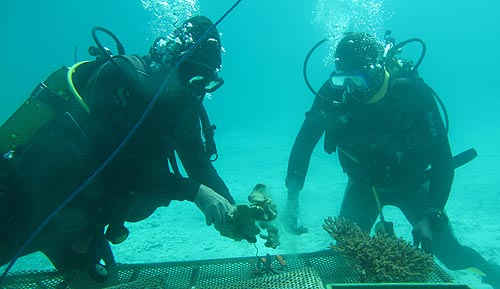
In the first year we will focus on setting up a hatchery. This should enable future farmers to populate their farms exclusively with seedlings from the hatchery. For each species the cultivation methods will have to be optimised considering the local conditions. Our goal until the end of 2015 is to develop 10 high quality products that can be produced in sufficient quantities. 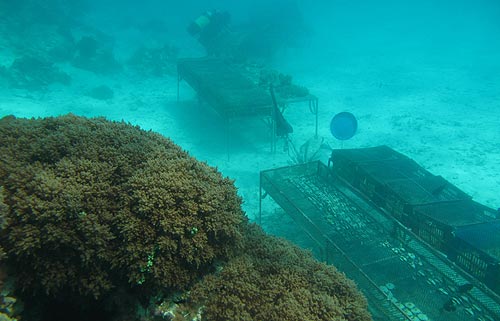
The outer reef of Zanzibar’s east coast is home to an abundance of different soft coral species. Suitable specimens are collected right on our doorstep and multiplication is initiated to generate a sufficiently large hatchery. Small skewers are used to promote soft coral fragments to adhere to a small rock. Once attached, the small coral trees will be spread out to an open gravel bed where they continue to grow.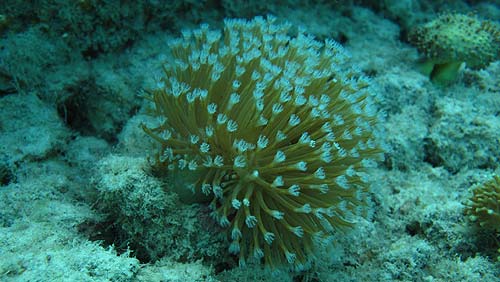
For hard corals we have to apply a different technique to make them stick to a small concrete disc. Whereas the softcorals is ready for sale after only 3 to 6 months, hard corals need up to 12 months. The daily work is fascinating and challenging but the first results are already promising.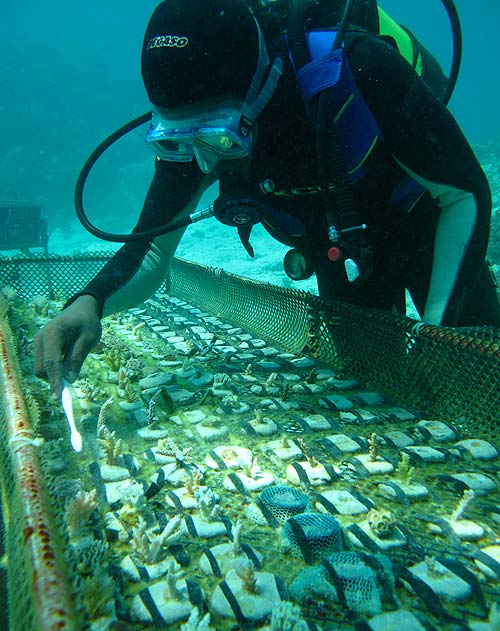
We are pleased to hear Simon’s complimenting our sponges and what we’ve achieved since we first met him in 2009. Indeed, we managed to generate a completely new product – this is worldwide the only place where this particular sponge species is cultivated. He also marvels at some of the methods we’ve developed and is happy to take new ideas home to inspire his sponge farmers.

